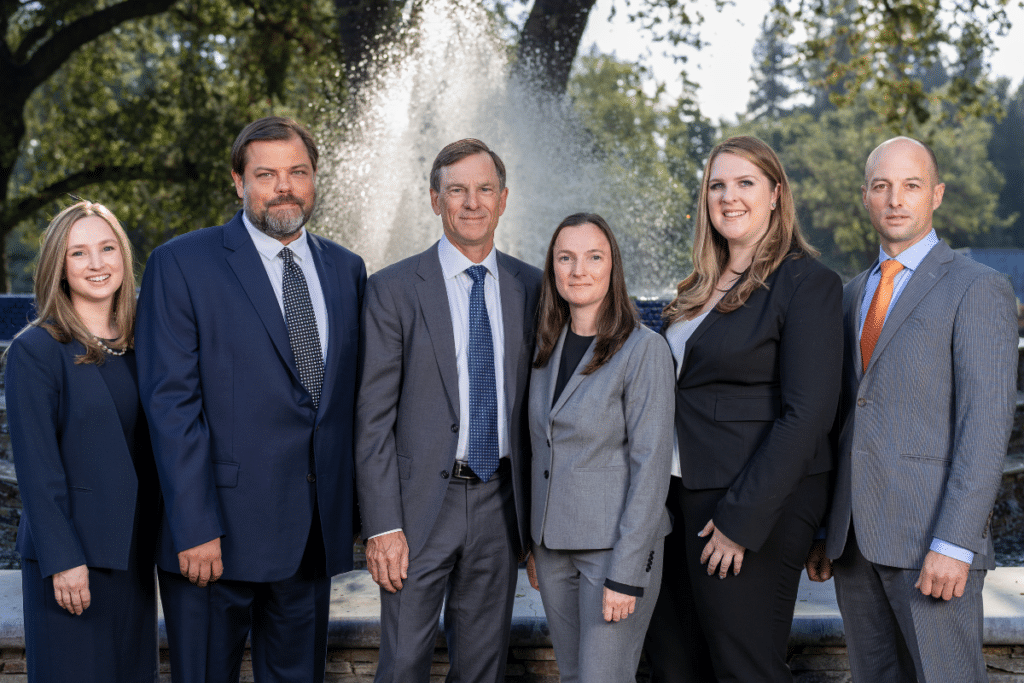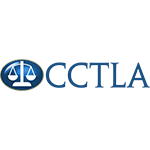California Wildfire Insurance Claims
If you find yourself in a dispute with your insurer over a California wildfire insurance claim, you have rights and options under California law. The experienced attorneys at Cutter Law can help you navigate the complex claims process, negotiate with your insurer, and fight for the full compensation you are entitled to under your policy.

- Steps To Take To File an Insurance Claim
- California Laws To Protect Homeowners
- Why Is My Insurance Company Not Covering All My Losses?
- What Constitutes Bad Faith Insurance Claims?
- Can I Sue My Insurance Company for Bad Faith?
- When Should I Contact an Attorney?
- Why Trust Cutter Law To Handle a Fire Insurance Claim?
- Frequently Asked Questions
Steps To Take Immediately After a Wildfire To File an Insurance Claim
When confronted with a devastating loss due to wildfire damage, follow these steps to expedite insurance payouts:
- Contact your insurer promptly to initiate the property fire damage claim process, providing policy details and a brief damage overview.
- Document damages thoroughly with photos and videos before any cleanup or repairs, serving as crucial evidence.
- Maintain records and receipts for expenses related to repairs, temporary housing, and other costs potentially covered under your policy.
- Compile an inventory of damaged personal property, including descriptions, ages, and values. Gather supporting documentation.
- Secure your property to prevent further damage by boarding windows or covering roof damage. You typically can seek reimbursement of these mitigation costs from your insurer.
California Laws To Protect Homeowners Filing Wildfire Insurance Claims
California has enacted laws and issued regulations to protect policyholders and ensure insurance companies handle claims fairly and efficiently. Some key protections include the following:
- Expedited claims handling procedures and minimum coverage requirements for wildfire losses
- Requirements for insurers to provide fair settlements covering the full value of damaged or destroyed property
- Mandatory coverage for additional living expenses and loss of use when a home is left uninhabitable by wildfire smoke and ash
How Long Do Insurance Companies in California Have To Settle a Wildfire Insurance Claim?
Under California law, insurance companies must adhere to strict timelines such as the following when processing wildfire claims:
- Insurers must acknowledge receipt of a claim within 15 days and provide necessary claim forms, instructions, and assistance.
- Once the insurer receives a completed proof of loss, they have 40 days to accept or deny the claim.
- If the insurer accepts a claim, it must make payment within 30 days of the settlement agreement.
| Wildfire Insurer Process | Timeline |
|---|---|
| Acknowledge Claim | 15 Days |
| Accept or Deny the Claim | 40 Days |
| Pay Settlement (If Accepted) | 30 Days |
Why Is My Insurance Company Not Covering All My Losses from the Fire?
Insurance companies commonly deny or underpay wildfire damage claims for several reasons, including underinsurance, inadequate coverage, policy exclusions, and lack of coverage for intangible losses like emotional distress.
Can I Dispute My Insurance Company's Decision if My Claim Is Denied or Underpaid?
If your insurer denies or offers an inadequate settlement for your property fire damage claim, you can dispute it by submitting a written appeal with the insurer. Include evidence to support your claim. If the issue remains unresolved, consider hiring an insurance attorney to pursue legal action.
What Constitutes Bad Faith in Handling Fire Insurance Claims?
In California, insurance companies have a legal duty to act in good faith and deal fairly with their policyholders. Examples of bad faith conduct in the context of wildfire claims include:
- Unreasonable delays in responding to, investigating, or processing claims
- Failing to conduct a thorough and objective investigation of the damages
- Denying a claim without providing a valid reason or factual basis
- Offering unreasonably low settlements that do not account for the full extent of the losses
- Misrepresenting the terms of the policy or applicable laws to avoid or limit payment
Signs of Bad Faith Practices
Red flags indicating potential bad faith from your insurer include prolonged claims processing with little communication, inadequate damage inspection, unexplained claim denials, refusal to share settlement calculations, and offers significantly below your policy limits without reflecting the true loss value.
Can I Sue My Insurance Company for Bad Faith Over a Fire Insurance Claim?
Yes, if your insurer acts in bad faith regarding your wildfire damage claim, you may sue to recover full policy benefits and other damages.
Recoverable Damages in a Fire Insurance Bad Faith Claim
In a bad faith lawsuit, you can seek compensation for a broad range of losses, including property damage and personal losses, additional expenses due to insurer delays, emotional distress, attorney fees, and punitive damages for severe misconduct.
Evidence Needed To Prove Bad Faith
To build a strong case for insurance bad faith, gather various types of evidence, which may include:
- All correspondence and communications between you and your insurer, including letters, emails, and notes from phone calls
- Documentation of your wildfire losses, such as photos, videos, property inventories, repair estimates, and receipts
- A complete copy of your insurance policy, including any endorsements or riders
- The insurer’s claim file, underwriting file, and any internal notes or communications regarding your claim
- Testimony from expert witnesses who can speak to the extent of the damage, the reasonableness of the insurer’s conduct, and the applicable standards in the insurance industry
The more evidence you have to document the insurer’s misconduct and support your allegations of bad faith, the stronger your case will be.
Statute of Limitations for Bad Faith Insurance Claims in California
California’s statute of limitations for most bad faith claims is two years from the insurer’s wrongful conduct. Specific deadlines can vary based on insurance type and policy terms, so consulting a bad-faith attorney is crucial to avoid missing deadlines.
At What Stage in the Insurance Process Should I Contact an Attorney?
It is generally best to seek legal guidance as early as possible, especially if you have a large or complex claim. An experienced wildfire attorney can assist you by:
- Reviewing your policy to identify all available coverages and benefits
- Advising you on how to document your losses and submit a strong claim package
- Communicating with the insurer on your behalf to protect your rights and interests
- Identifying and addressing any signs of bad faith or unfair claims-handling practices
- Negotiating with the insurer to seek a fair and reasonable settlement
- Filing a lawsuit and representing you in court if the insurer refuses to pay what you are owed
Even if you are still determining whether you have a valid claim, schedule a free consultation with an attorney to discuss your situation and learn more about your legal options.
Why Trust Cutter Law To Handle a Fire Insurance Claim?
The experienced attorneys at Cutter Law have a proven track record of success representing California wildfire victims against insurance companies that fail to meet their obligations. When you choose Cutter Law to handle your claim, you can expect:
- Decades of combined experience handling complex property damage and bad faith insurance claims
- In-depth knowledge of California insurance laws and regulations protecting policyholders
- Skilled negotiators who will fight tirelessly to secure the maximum compensation available under your policy
- Experienced litigators who are not afraid to take your case to trial
- Compassionate and personalized service from a team that understands the devastating impact of wildfires
- A contingency fee arrangement, meaning you pay no upfront costs, and we only collect a fee if we recover money for you
We are also committed to holding insurance companies accountable when they put profits over people. We served as co-lead counsel in the landmark case of Doan v. State Farm, securing a significant victory for California homeowners. We forced State Farm to change its unfair claims-handling practices and implement new safeguards to protect policyholders.
At Cutter Law, we have seen firsthand the devastation wildfires can cause. We understand the emotional and financial toll these disasters can take on you. Contact Cutter Law today for a zero-obligation free consultation.
Testimonials
Frequently Asked Questions
What if I do not have homeowners insurance?
California law allows both uninsured and insured victims to seek recovery from the parties responsible for causing the fire. Whether you have insurance or not, Cutter Law can help.
What if I'm a renter and my belongings were damaged in a wildfire?
Renters with insurance can typically claim damaged personal property through their policy. In contrast, landlords’ insurance usually only covers building damage and does not compensate for damage to personal belongings unless negligence is involved.
How much does it cost to hire a wildfire insurance claim attorney?
Cutter Law’s wildfire insurance claim attorneys work on a contingency fee basis, meaning no upfront costs. We only collect fees upon successful recovery, ensuring access to quality legal representation.
Schedule A Free Case Review
"*" indicates required fields
Our Office Locations
Sacramento Office
401 Watt Avenue Suite 100
Sacramento, CA 95864
Phone: 916-290-9400
Oakland Office
Cutter Law P.C.
1901 Harrison Street Suite 910
Oakland, CA 94612







